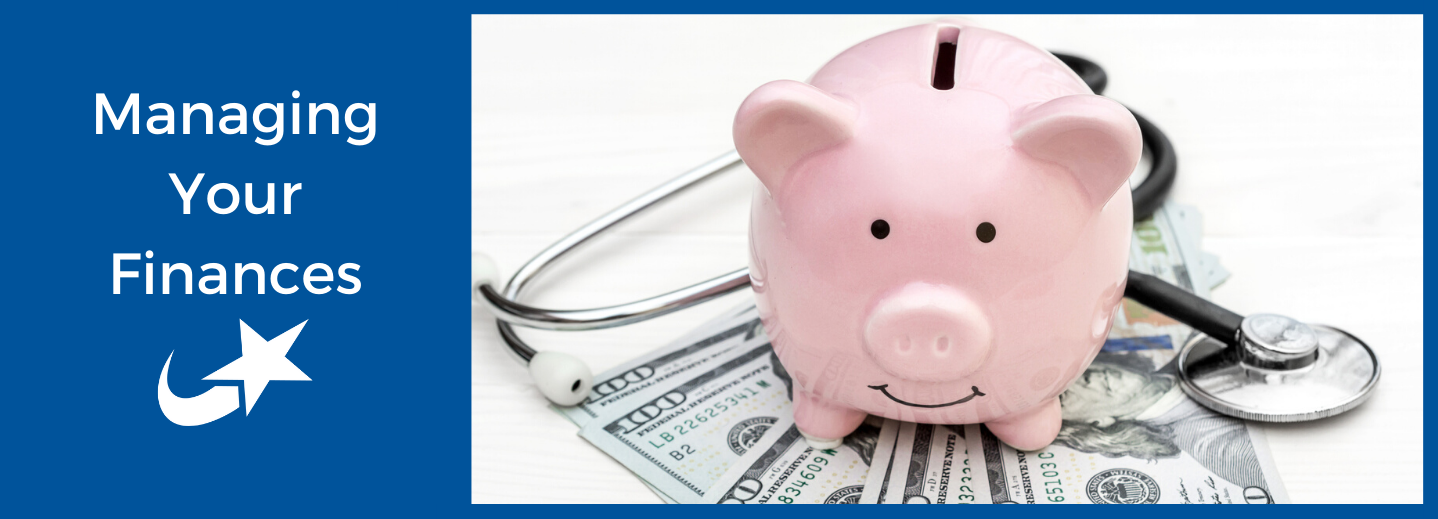Managing Your Finances During the COVID-19 Pandemic

The COVID-19 pandemic is not only causing fear and uncertainty about our health, but our livelihood as well. Many wonder “What happens to me and my family if my employer has to lay off people or my hours are cut?”
Now more than ever, it’s important to keep track of your expenses to try to not spend more than you make or increase your credit card debt any more than absolutely necessary. If you feel like you live paycheck to paycheck, then now is definitely time to take a hard look at your expenses, see if you can make adjustments, and take firm control.
To get control, try to identify how much money is coming in each month and how much is going out. Creating a budget can help. There are many apps and online templates you can choose from. Many of them provide visual images, like pie charts, that help you see how big of a chunk each expense is taking from your take-home pay.
A budget will tell you if you’re setting aside enough money for the essentials (rent, utilities, food), help you identify anywhere you might be able to make a change, and unfortunately, if and how much you're short. If money is tight, cancel non-essential subscription services (like the gym, cable, etc.) temporarily. You can always restart them when things get better. If you're short, many financial institutions, like CAMPUS, are offering payment deferment or Relief Loans during this national emergency. Since most of us are practicing social distancing to minimize contagion, you may already be saving money by not going out.
If your credit card debt is high, see if any of your existing cards are offering low interest rates on balance transfers. Transfer the balance from the highest card to a lower interest card and pay more than the minimum as soon as you can. Also, until you have paid off the debt, only use your credit card for emergencies. Take advantage of balance transfer promotions, if possible.
Once we're on the other side of this crisis, remember to try to beef up your emergency savings or start an emergency savings account if you haven’t done so. Ideally, you want to save at least 3 months of your take-home pay. You can start with as little as $5 a week. Simply save $5 consistently each week and when you think you can add a little more, increase your deposit. To make this easier, set up an automatic transfer from your checking account. It’s easy to do on CAMPUS Online and Mobile Banking, but if you need help, just contact us at info@campuscu.com, or give us a call at 1-800-367-6440.
Know that CAMPUS USA Credit Union is always by your side and we, together, will get through this crisis. Call 1-800-367-6440 or contact us online today if you are experiencing financial hardship due to COVID-19 and we will do what we can to help you!
By CAMPUS USA